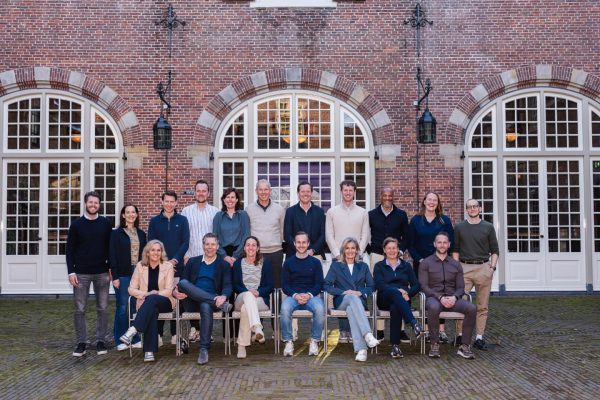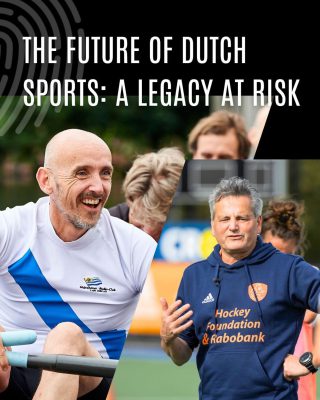The Dutch flag flew high and proud at the 2024 Olympic Summer Games in Paris, where Dutch athletes once again showed the world their strength, skill, and determination. With the 2026 Winter Games in Italy on the horizon, elite sport in the Netherlands finds itself at a pivotal crossroads. Despite recent success, a series of structural challenges threaten to undermine the long-term vitality of top-tier athletic performance in the country.
From budget cuts and shifts in funding models to increasing reports of misconduct and rising concerns over athlete mental health, the future of elite sports in the Netherlands will depend less on short-term medals and more on long-term vision. At the heart of this transition lies an urgent need for strong, forward-thinking leadership—exactly what the Sports Leadership Institute (SLI) aims to provide.
Financial Shifts and Policy Challenges
The liberalization of the sports betting market has brought with it unforeseen consequences. Previously, state-run betting monopolies were a significant source of funding for Dutch sport at all levels. As this monopoly has eroded, so too has the financial pipeline that supported grassroots and elite programs alike. This comes at a time when the national government is actively trimming its budget, with sports also falling under the fiscal knife.
These financial shifts are more than just numbers on a spreadsheet—they reflect changing national priorities and a recalibration of how sport is valued and supported. It would be easy to point a finger at money as the root of the current challenges. But the situation is more complex, woven into a broader web of governance, societal expectations, and cultural shifts.
The Human Toll: Misconduct and Mental Health
The pressure on elite athletes has never been higher. With more media exposure, commercial expectations, and public scrutiny than ever before, many athletes are facing unprecedented levels of stress. Recent years have seen a rise in reported cases of misconduct within sports organizations, pointing to the need for better oversight, ethical standards, and support systems.
Coupled with this is the growing recognition of the mental health challenges faced by elite athletes. Success on the world stage often comes at the cost of personal well-being, and the Dutch sporting world is waking up to the fact that performance must be matched with compassion, care, and a long-term approach to athlete development.
Building the Leaders Sport Needs
Addressing these multifaceted issues requires more than policy tweaks or funding shifts—it demands a new generation of capable, inspired, and well-prepared sports leaders. That’s where the Sports Leadership Institute steps in.
Founded by Bartel Berkhout, whose journey took him from the legal towers of Amsterdam’s financial district to the sidelines of international hockey fields, the SLI is the culmination of a mission to professionalize and empower leadership in sports. Berkhout’s experience at Nyenrode Business University, combined with a lack of academic options in sports leadership at the time, inspired him to create what was missing—a dedicated, world-class education program tailored for the sports sector.
The Sports Leadership Programme (SLP), originally launched in 2014 as Nyenrode Sports, quickly gained traction for its unique blend of business insight, governance training, and performance expertise. The program’s success led to the creation of the independent Sports Leadership Institute in 2019, now operating in collaboration with the Amsterdam University of Applied Sciences and various international academic institutions.
Educating for a Stronger Future
The SLP is more than just a degree—it’s a dynamic, executive education initiative designed to prepare leaders who can thrive in the high-stakes, fast-evolving world of elite sports. Its curriculum focuses on four pillars: governance, social impact, high-performance strategies, and business acumen.
- Governance and Financial Management: As funding models shift and accountability becomes paramount, the SLP equips leaders with the knowledge to build transparent, resilient, and strategically sound organizations.
- Social Impact and Community Engagement: Sport is not just about winning—it’s also about uniting communities and inspiring future generations. The SLP explores how sport can be leveraged to foster social cohesion and national pride.
- High-Performance Strategy: Understanding what drives elite performance, from coaching to athlete development to data analysis, is key to staying competitive on the world stage.
- Business Acumen: Today’s sports leaders must be entrepreneurs, marketers, and strategic thinkers. The SLP provides tools to innovate, build brand value, and ensure long-term viability in an increasingly commercialized sports landscape.
Beyond technical skills, the SLP emphasizes personal leadership development—cultivating self-awareness, authenticity, and the ability to lead through complexity and change.
Building a Stronger Ecosystem
The Sports Leadership Institute also works outside the classroom to strengthen the broader sports ecosystem. Its offerings include corporate team development days, expert field trips, and conference moderation. One of its recent highlights was an alumni gathering at Nyenrode, featuring a lively discussion led by Paul van Ass, Olympic gold-winning field hockey coach, and Marco de Ruiter, country manager for The Walt Disney Company Benelux.
Their Q&A session focused on the visibility and future of elite sports, emphasizing innovation and the cultivation of role models. Both stressed that while funding is crucial, the key to a flourishing sports culture lies in the quality and vision of its leadership.
The Role of Role Models and Visionaries
Elite sports produce role models—athletes whose stories, struggles, and triumphs inspire not just fans but society at large. These individuals often go on to become coaches, mentors, or even policymakers. However, building these role models requires an environment that supports excellence, integrity, and personal growth.
Strong leadership, therefore, is not just about managing budgets or winning medals. It’s about creating the conditions in which athletes and organizations can thrive—ethically, sustainably, and proudly. It means having the courage to innovate, the insight to govern wisely, and the empathy to prioritize well-being.
A Call to Action
The Netherlands has all the ingredients for continued success in elite sport—talent, tradition, and tenacity. But to convert these into long-term achievement, the country must invest in more than athletes. It must invest in leadership.
The Sports Leadership Institute is not just responding to this need; it is actively shaping the future. By educating and empowering the next generation of sports leaders, the SLI is laying the groundwork for a Dutch sporting future that is not only competitive but compassionate, connected, and cutting-edge.
As the countdown to the 2026 Winter Games begins, now is the time to act. Elite sport in the Netherlands will thrive if lead with purpose, passion, and vision. The Sports Leadership Institute is doing its part to develop those leaders.
Written by John Mahnen


